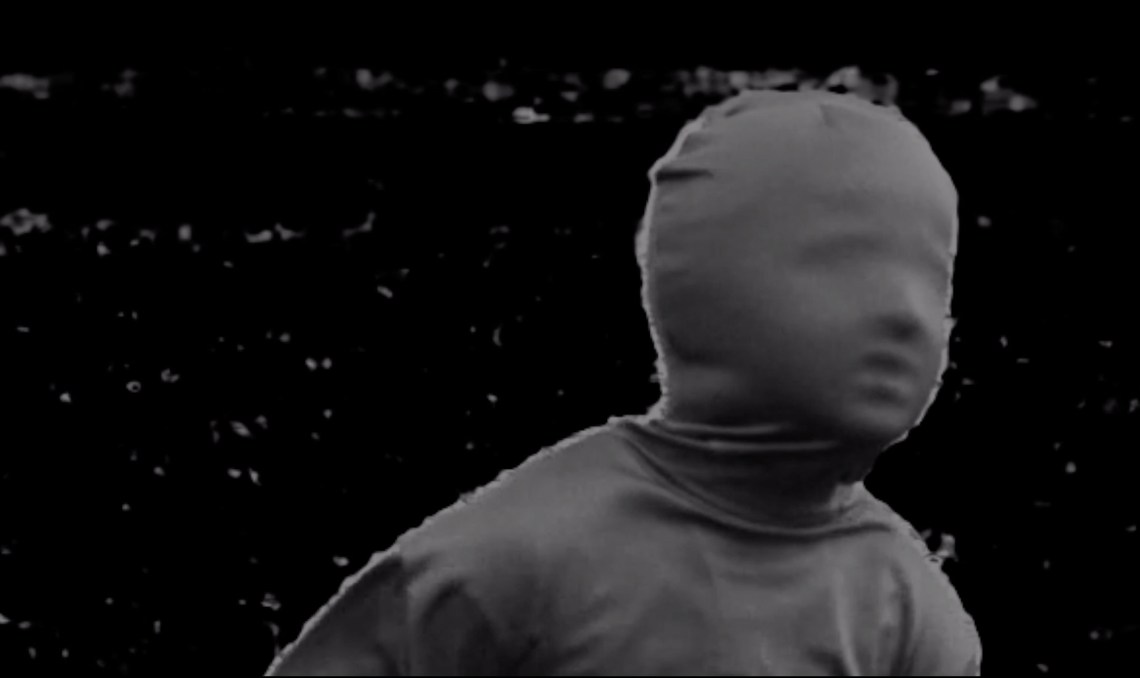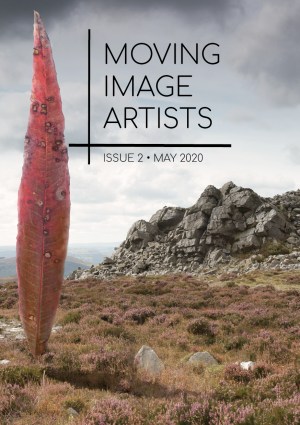
Katie Grace McFadden on landscape and alienation in the digital age.
The landscape has always been central in my work. I would like to say it is because of a great kinship I share with the land of my home but rather I believe this fascination is born of a distant relationship. Growing up amongst undeniably ephemeral surroundings, yet feeling more at home in the cybernated landscape of the early internet has left a feeling of dissonance that is palpable in the majority of my films.
The characters in my work are seemingly adrift in a landscape that seems foreign to them, their alienation reflects our experience within both the natural and the digital. The landscape changes, but a spectral feeling remains, as human figures appear incongruous within their surroundings of fields and cattle, this incompatibility reflecting modern man’s conflicting relationship with his own habitat. My films are not literal, but rather follow characters through oblique memories, attempting to actualize moments that create a feeling that we are surrounded by the unseen. The exact nature of this unknown is never explicitly revealed. Cutting away before we ever get too close.
It is not just an intangible unknown I hope to highlight in my films but the mysteries of our past. In placing the landscape at the centre of my frames, I am using cinema to reveal the emotional and historical undercurrents that flow under the scenery, my film Only Salt which depicts traffic as minute movement between vast rocks highlights the insignificance of us. Importantly, this work, having been filmed near the Northern Irish border, calls into question our ownership of the land, and if we can claim any ownership on anything at all. In making these films I hope to probe our relationship to our own histories, questioning the purpose and impact of humanity on the natural. I believe that filmmakers are capable of signalling the remnants of past cultures, foreseeing ecological calamity and illuminating the increasingly fractured relationship between humanity and the authentic. I aim to achieve such heights by focussing on the landscape, and the role we play within it.
Since the origins of cinema, the landscape in flux has always been central. Beginning with the early travelogue that documented the natural world to the hypnotic landscapes of Tarkovsky’s films that brought us complex reflections of existence. Even before cinema, landscape played a role in art. During the 18th and 19th century we saw a rise in landscape painting, as the industrial revolution boomed, images of the natural world reinstated the human position in a time of great change. Beyond the industrial revolution, we now find ourselves in a seemingly endless technological boom. Through this intense focus on the landscape it is possible to create a sense of otherness, what should feel familiar, feels alien. Questioning if we have segregated ourselves from the world in which we previously inhabited and created a cybernated landscape where our flesh is at odds with the binary nature of this new realm.
I am aware that there is a paradox in creating digital films that discuss the vacuity of a life lived online, in creating these films I am in some ways adding to the noise. Although in creating slow films I aim to subvert the fast moving pace of life in the digital age. Despite this, in re-creating images I am continuing the artifice, but I feel that our natural landscape has become equally foreign to us as the digital. As reality, the mountains, lakes, sea and sky have become entirely impregnated by an aesthetic, in this way the desert of the digital is equal to that of the real.
The only purpose of my films is to provoke an atavistic sense of wonder surrounding our existence within the world. I believe there is an introspective aspect in the emptiness of the silver screen and I want to use this space to reflect on what it means to be human in a time when we have become detached from the natural but remain at odds with the artificial environment we have created for ourselves.
More about Katie Grace McFadden.
Click for more articles in this issue:

